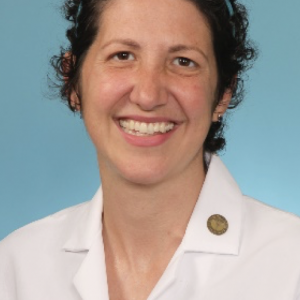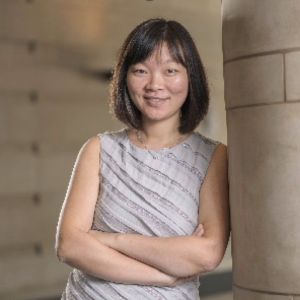The Neurofibromatosis Therapeutic Acceleration Program (NTAP) at The Johns Hopkins School of Medicine is proud to announce that Dr. Angela Hirbe (Washington University) and Dr. Ping Chi (Memorial Sloan Kettering Cancer Center) have been selected as the 2017 recipients of the Francis S. Collins Scholars Award in Neurofibromatosis Clinical and Translational Research. The Francis S. Collins Scholars Program was established by NTAP in 2014, with the purpose of creating a community of exceptionally well-trained clinician-scientists making a career long commitment to the research and clinical care of patients with NF1. As the next generation of leaders in this area, the Collins Scholars will be those who inspire and train others, and drive the discovery of cures for NF1 and its many manifestations.
On Wednesday June 14, NTAP will host its annual Collins Scholar Orientation event at the Whittemore House in Washington D.C. featuring presentations from the current Collins Scholars and remarks from the Director of the National Institutes of Health, Dr. Francis Collins, who in 1990 discovered the NF1 gene and for who this award is named. During this event, Dr. Hirbe and Dr. Chi will be formally presented as the 2017 Collins Scholar awardees.
Dr. Angela Hirbe is a graduate of the Washington University M.D. Ph.D. program and completed her residency in Internal Medicine and fellowship in Oncology as part of the Physician Scientist Training Program. Dr. Hirbe has had a longstanding interest in Neurofibromatosis research and her post-doctoral work was performed in the laboratory of Dr. David Gutmann where she used next-generation sequencing technologies to identify b-III spectrin as a protein involved in malignant peripheral nerve sheath tumor (MPNST) pathogenesis and developed a mouse model for this deadly type of sarcoma. This work has transitioned into her own lab when she joined the faculty at Washington University. Dr. Hirbe is currently an Assistant Professor in the Division of Medical Oncology in the Department of Medicine at Washington University in St. Louis. Clinically, Dr Hirbe treats patients with sarcoma and has a strong clinical interest is in the care of patients with NF1-MPNST. Her laboratory continues to use genomics to identify drivers in MPNST pathogenesis and further develop mouse models for preclinical studies and therapeutic drug testing.
Angela Hirbe is a graduate of the Washington University M.D. Ph.D. program and completed her residency in Internal Medicine and fellowship in Oncology as part of the Physician Scientist Training Program. Dr. Hirbe has had a longstanding interest in Neurofibromatosis research and her post-doctoral work was performed in the laboratory of Dr. David Gutmann where she used next-generation sequencing technologies to identify b-III spectrin as a protein involved in malignant peripheral nerve sheath tumor (MPNST) pathogenesis and developed a mouse model for this deadly type of sarcoma. This work has transitioned into her own lab when she joined the faculty at Washington University. Dr. Hirbe is currently an Assistant Professor in the Division of Medical Oncology in the Department of Medicine at Washington University in St. Louis. Clinically, Dr Hirbe treats patients with sarcoma and has a strong clinical interest is in the care of patients with NF1-MPNST. Her laboratory continues to use genomics to identify drivers in MPNST pathogenesis and further develop mouse models for preclinical studies and therapeutic drug testing.
 Dr. Ping Chi is an Assistant Member in the Human Oncology and Pathogenesis Program (HOPP), and an Assistant Attending Physician in the Department of Medicine at Memorial Sloan Kettering Cancer Center in New York City. Dr. Chi completed clinical training in internal medicine at the Brigham and Woman’s Hospital and Medical Oncology at Memorial Sloan-Kettering Cancer Center, and a concurrent postdoctoral training in epigenetics and chromatin biology in the C. David Allis’ lab at the Rockefeller University. Dr. Chi’s current laboratory research focuses on understanding the genetic and epigenetic mechanisms of transcriptional activation of novel oncogenic transcripts and oncogenic transcription factors in solid tumor malignancies. Through mechanistic studies, she aims to identify novel therapeutic strategies to target oncogenic transcription factors and aberrant transcriptional activation of oncogenes. Dr. Chi also maintains an active academic clinical practice, leads early phase clinical trials, and works with a multidisciplinary team to care for patients with sarcomas, with the goal to expedite clinical translation of laboratory research.
Dr. Ping Chi is an Assistant Member in the Human Oncology and Pathogenesis Program (HOPP), and an Assistant Attending Physician in the Department of Medicine at Memorial Sloan Kettering Cancer Center in New York City. Dr. Chi completed clinical training in internal medicine at the Brigham and Woman’s Hospital and Medical Oncology at Memorial Sloan-Kettering Cancer Center, and a concurrent postdoctoral training in epigenetics and chromatin biology in the C. David Allis’ lab at the Rockefeller University. Dr. Chi’s current laboratory research focuses on understanding the genetic and epigenetic mechanisms of transcriptional activation of novel oncogenic transcripts and oncogenic transcription factors in solid tumor malignancies. Through mechanistic studies, she aims to identify novel therapeutic strategies to target oncogenic transcription factors and aberrant transcriptional activation of oncogenes. Dr. Chi also maintains an active academic clinical practice, leads early phase clinical trials, and works with a multidisciplinary team to care for patients with sarcomas, with the goal to expedite clinical translation of laboratory research.
About NTAP
Based at the Johns Hopkins School of Medicine, The Neurofibromatosis Therapy Acceleration Program (NTAP) was founded in 2012 to accelerate the discovery and advancements for NF1 associated peripheral tumors. NTAP supports initiatives that serve its mission of focusing on therapeutics, fostering collaboration, promoting the open and timely sharing of results, and streamlining the research process. Following these guiding principles and with the resources provided, NTAP has enabled the generation of tangible results ranging from early discovery efforts to clinical trials which are actively changing the field of NF1 research. For more information, go to: http://www.n-tap.org
